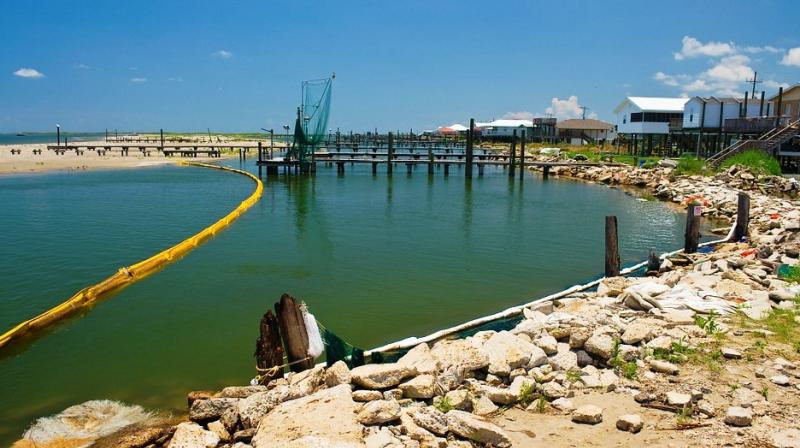Magnets to clean oil spills in an environment friendly manner
Researchers’ finds magnets could be used to clean up oil spills.

Washington: An interdisciplinary research carried forward by a group of researchers has revealed that it could be possible to remove oil spills from the surface of the ocean by using magnets in future.
The researchers have published the study in the Journal of Advanced Functional Materials. A group of researchers led by Prof. Dr Marcus Halik developed functionalised iron oxide particles that can attract any types of hydrocarbons.
The magnetic particles and their shells that are removed from the water in an environmentally friendly manner and can even be reused after being cleaned.
In the study, the researchers describe how functionalised iron oxide particles can be modified with a self-assembled monolayer so that they only absorb hydrocarbons. This group of chemical substances includes light compounds such as alkanes and aromates but also crude oil, petrol and diesel.
Such hydrocarbon molecules surround fine particles as if they are being sucked in and reach a volume that can grow to 14 times the size of the core of the particle.
A video on the researchers' website shows how iron oxide powder is applied to liquid oil and the instant transformation into a substance that can be removed by a magnet.
In addition to the multiple re-usability of the source material, the large surface to volume ratio provided by nanoparticles and the favourable ratio to the quantity of the hydrocarbons to be adsorbed, all contribute to the very high efficiency of the process.
Conventional methods, on the other hand, create dispersions or mixtures of substances that enable the hydrocarbons to be more easily digested by bacteria but remain in the seawater until this process is complete.
In addition to manufacturing and characterising the particles, the research involved experiments using various hydrocarbons and different sources of water at different temperatures supplemented by molecular simulations that enabled the materials to be improved further.
In future, the system could help to considerably reduce the impact of contamination by oil on the environment. The researchers are currently working with partners in industry to scale up the manufacturing of the materials and to transfer the concept to real applications in clean-up operations.

